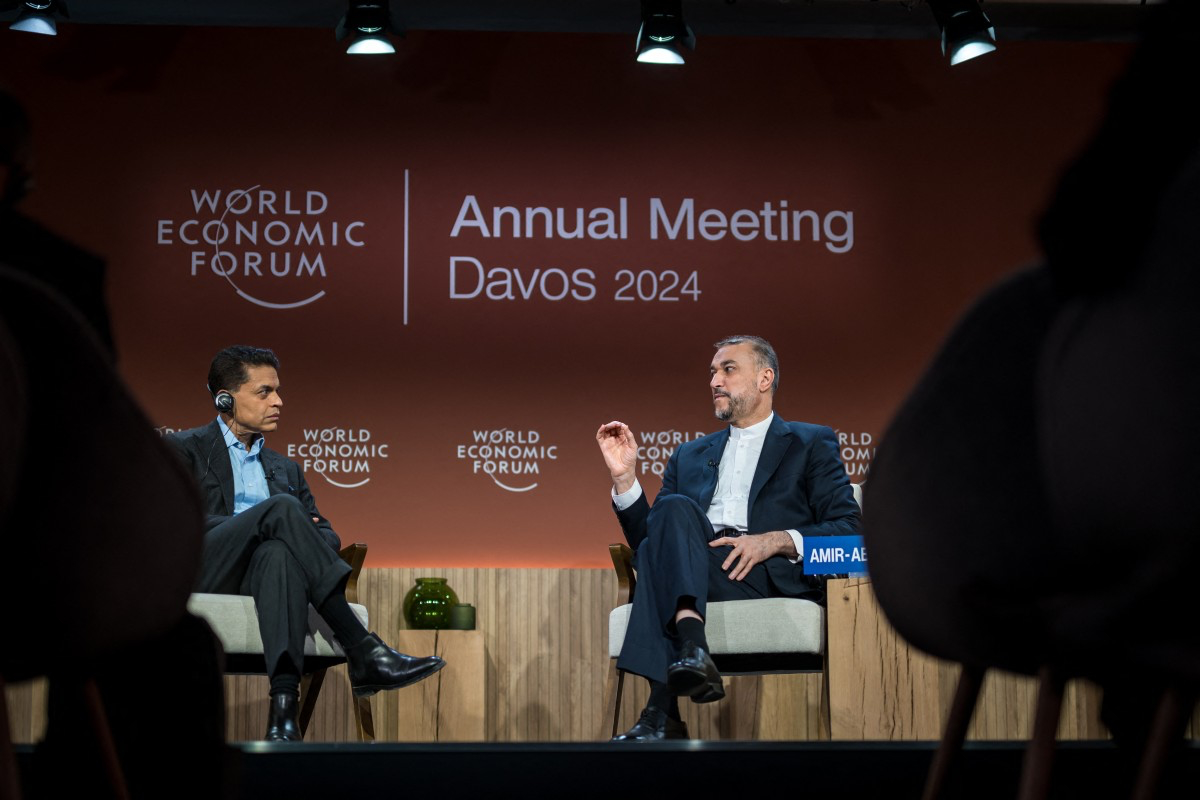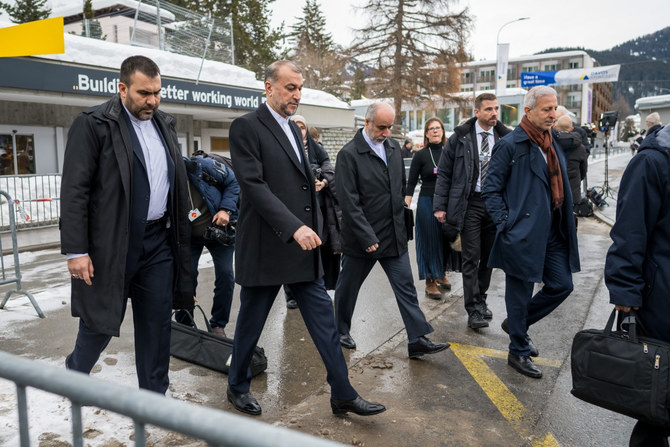LONDON: Iran’s foreign minister on Wednesday urged Israel to abandon its war on Gaza if the Middle East is to avoid collapsing into a broader regional conflict.
Hossein Amir-Abdollahian, addressing the World Economic Forum in Davos a day after Iran carried out strikes in Iraq and Pakistan, said instability in the region — including attacks against merchant shipping in the Red Sea — stems from the war in Gaza.
“We warned that if the war crimes and genocide against Gaza and the West Bank don’t stop, the war will spread out, it will become larger,” he said.
“That doesn’t mean we want it or want to play a role in this enlargement, no, it’s because we have a proper understanding of the situation and conditions in the region. Some of the groups mentioned (Hezbollah in Lebanon and the Houthis in Yemen) have acted to defend Gaza.”
Concerns of escalation increased this week after UK and US missile strikes against sites in Yemen to dissuade further Houthi attacks on commercial ships in the Red Sea.

Iranian Foreign Minister Hossein Amir-Abdollahian (R) speaks to CNN journalist Fareed Zakaria during a session at the World Economic Forum meeting in Davos on January 17, 2024. (AFP)
Asked to comment on the situation, Amir-Abdollahian pointed the finger at Israel, saying it brought the conflict into the waterway — through which 15 percent of global trade flows — with attacks against Yemenis bringing aid to Gaza.
Iran has become embroiled in its own diplomatic crisis after a series of what it claims were strikes inside other countries but not against them.
This included Tuesday night’s strike on what Tehran claimed was Iranian terrorist group Jaish Al-Adl in Pakistan’s Balochistan province on the border with Iran, which Islamabad said left two children dead and several others injured.
Amir-Abdollahian denied that Iranian attacks against purported terrorists in foreign jurisdictions were comparable to Israel’s response to the Oct. 7 Hamas attack.
“Israeli officials claim that 1,200 Israelis were killed, OK, but they didn’t differentiate between civilians and the military, and (in Gaza) now 16,000 children have been killed in defense (of those Israelis),” he said, adding that “24,000 Palestinians have been killed, meaning proportionality hasn’t been observed as more than 10 times as many Palestinians have been killed.”
Stressing that Iran “respects the sovereignty and territorial integrity” of neighboring states, Amir-Abdollahian nonetheless said Tehran has “no reservation nor hesitations” when it comes to defending the country from terrorist acts.
Despite his protestations, Iraq withdrew its ambassador from Tehran and filed a complaint to the UN, while Pakistan has banned Iran’s ambassador from returning to the country.
This has added to the perception of heightened regional tensions, with little to no sign that Israeli Prime Minister Benjamin Netanyahu is ready to consider a sustained ceasefire or negotiations to end hostilities in Gaza.
Amir-Abdollahian said: “The solution to this crisis isn’t a military one. They (Israel) have to respect the rights of the Palestinians.”






























